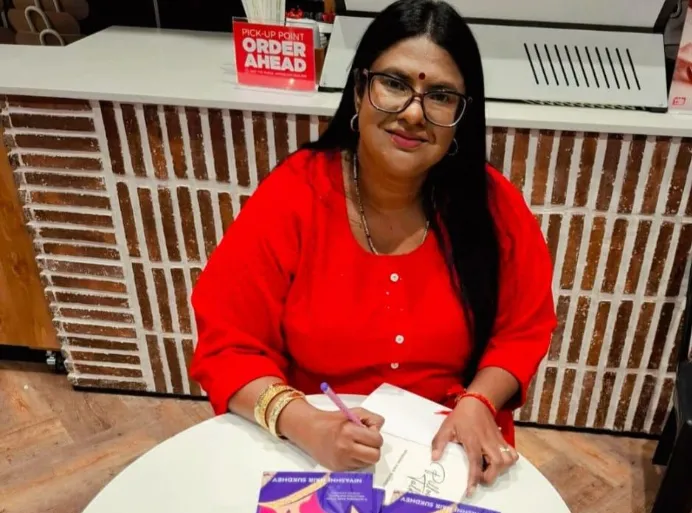
Nivashni Nair Sukdhev recently launched her book, Pillow Talk.
Image: Supplied
HERITAGE matters. It gives us identity, flavour, rhythm. But when it becomes the only way to explain our romantic lives, it flattens us into a stereotype.
Too often, Indian characters in books and film are boxed into a single storyline: the dutiful daughter draped in a sari, dating under her parents’ watchful eyes until marriage is arranged or approved. With my new novel Pillow Talk, published by Jonathan Ball Publishers, I wanted to flip the script.
I am the author of a South African romance novel that features Indian characters in a fictional town in KwaZulu-Natal. I wrote this book because I love writing and romance, but I also love truth, and the truth is that modern South African Indians live far more complicated, exciting, and ordinary lives than the clichés suggest.
Pillow Talk follows Shona Shah, a bridal designer who lives alone in a small KZN town and shares a “no strings attached” relationship with her childhood friend Senthil Aiyer. Their relationship is tender, chaotic, and defiantly casual. Shona has stepped away from her family’s tailoring business to build something of her own, while juggling obligations that still tug at her. She makes mistakes, sets boundaries, and learns that love doesn’t have to follow tradition’s blueprint.
I based Shona’s apartment on my own because I wanted to show a woman who creates a home for herself without waiting for marriage. I have supportive, loving parents but I lived on my own for 10 years before marrying at 28, and I know many women doing the same. Yet when we appear in fiction, we’re often portrayed as if we only exist in the space between our parents’ expectations and a wedding aisle.
This is where changing the narrative matters.
Culture enriches us, but it doesn’t define every choice. We can celebrate our religious festivals, honour our ancestors, and still date on our own terms. We can fall in love, have break-ups, explore no-strings relationships, or marry later or not at all. Our hearts don’t need to fit a single script.
In Pillow Talk, the “no pillow talk” rule isn’t just a cute twist. It speaks to the way modern relationships test boundaries and invite vulnerability. When that rule begins to crumble, it’s because real connection always leaks through the cracks not because culture dictates it. What I hope readers take away is freedom. Freedom to see Indian South Africans as layered and contemporary. Freedom to imagine love stories that don’t end with a tray of sweets and an arranged match because that’s how we have been portrayed. Freedom to understand that romance is as varied as the people who live it.
Love is not a cultural performance. It’s messy, funny, heartbreaking, and deeply human. Our traditions can guide us and give us beauty, but they don’t own our hearts. We respect our traditions, we honour our culture and we treasure our heritage but they don’t get to write our love stories. Modern romance is ours to shape, free from narrow expectations and tired stereotypes.
Nivashni Nair Sukdhev is a former award-winning journalist and the author of What’s on My Mind? Making Babies, a memoir about her triumph over infertility. She ventured into romance fiction with her debut in February 2022 and has since written four romance novels. Nair Sukdhev is a proud mother and wife, a devoted bibliophile and an unrepentant lover of shoes. Her new book, Pillow Talk, published by Jonathan Ball Publishers, was launched on September 18.
Related Topics: